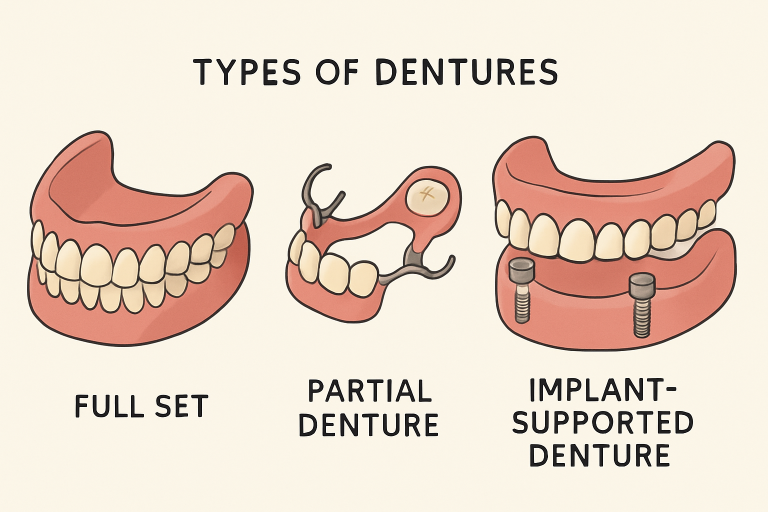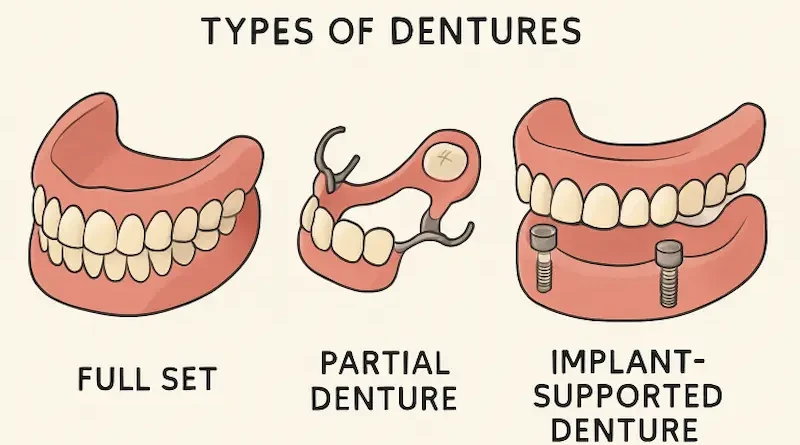Questions Worth Asking Before Choosing Dentures: A Patient’s Guide
Considering Your Options: What to Know First
Whether you’re missing several teeth or preparing for full dentures, making confident dental decisions starts with knowledge. As you approach your first appointment, consider this change’s functional and emotional impact. The choices you make now will influence your oral health, comfort, and quality of life. Engaging reputable denturist services ensures you’re equipped to ask vital questions and receive guidance tailored to your needs. It’s crucial to seek out teams that prioritize transparency and personalization. A clear understanding of the process will help you overcome any initial anxiety.
Understanding Different Types of Dentures
The world of dentures extends beyond one-size-fits-all. Complete dentures are suited for those who have lost all teeth in an arch, whereas partial dentures fill in gaps for patients with some remaining natural teeth. Implant-supported dentures have also become increasingly popular, offering improved stability and bone preservation but requiring surgical placement. Each type brings unique benefits and considerations concerning fit, function, and adaptation time.
Complete vs. Partial vs. Implant-Supported Options
Complete dentures restore full arches and are often removable for ease of cleaning, while partial dentures use clasps or attachments to secure to your existing teeth. Implant-supported options typically provide more security but have a higher upfront cost and longer treatment timeline. When discussing your options, it’s common to have denture questions regarding comfort, maintenance, and suitability. Your dentist or denturist will assess your oral health, bone density, and goals to recommend the type best suited to your circumstances.

The Denture Process Explained
Understanding each step reduces surprises and sets realistic expectations. The creation and fitting journey often begins with impressions or digital scans, followed by the design and fabrication of a custom appliance. Multiple appointments are required to ensure a precise fit and bite alignment. During fittings, adjustments are standard as your gums and tissues adapt. The American Dental Association emphasizes that communication between you and your dental professional is crucial for successful outcomes.
Why Materials Matter in Denture Selection
Dentures can be crafted from several materials, each offering distinct advantages. Acrylic is popular for its lightweight feel and affordability, making it a go-to choice for many. Porcelain teeth, though more prone to chipping if dropped, provide a natural appearance and are highly resistant to wear. Flexible polymers can supply extra comfort and may cause fewer sore spots on sensitive gums. When choosing, weigh factors like durability, comfort, budget, and aesthetics with your provider.
Customization and Comfort Factors
No two mouths are exactly alike, making customization vital for a natural fit and feel. Tailoring the color, shape, and alignment ensures your new teeth look realistic and match your facial structure and previous smile. Communicate openly about sore areas or shifting during fittings—most initial problems can be addressed through simple adjustments. Poor fit can impact comfort and overall oral health, so prioritize this stage for optimal results.
Aftercare and Adjustments: What to Expect
Adaptation typically takes several weeks, with some initial irritation or discomfort as your mouth gets used to its new appliance. Routine cleaning is essential to prolong your denture’s lifespan and prevent oral health issues such as infections and gum disease. If you’re looking for reliable options, seeking dentures in Orlando, or other areas close to you, can provide you with a range of choices tailored to your needs. Regular check-ins allow your specialist to spot any developing problems early and fine-tune your fit for continued comfort. According to a WebMD guide, diligent aftercare routines directly contribute to long-term success with dentures.
Costs and Insurance Coverage for Dentures
Financial planning is a crucial aspect of your denture journey. The price can vary based on the complexity of the case, chosen materials, workmanship, and whether pre-treatment (such as tooth extractions or implants) is required. Many dental insurance plans cover at least part of the cost; however, policies differ widely, and it pays to check specifics such as deductibles, annual maximums, and network providers. Budgeting ahead of time and exploring payment plans can make the process more manageable.
Expert Tips for a Stress-Free Experience
To ensure a positive experience from start to finish, prepare by writing down your questions and bringing them to every appointment. Ask about anticipated challenges and request recommendations for care routines or products. If possible, gather real-life testimonials to better understand what the transition will feel like. Remember, proactive and informed patients are often the most satisfied with their care outcomes.

